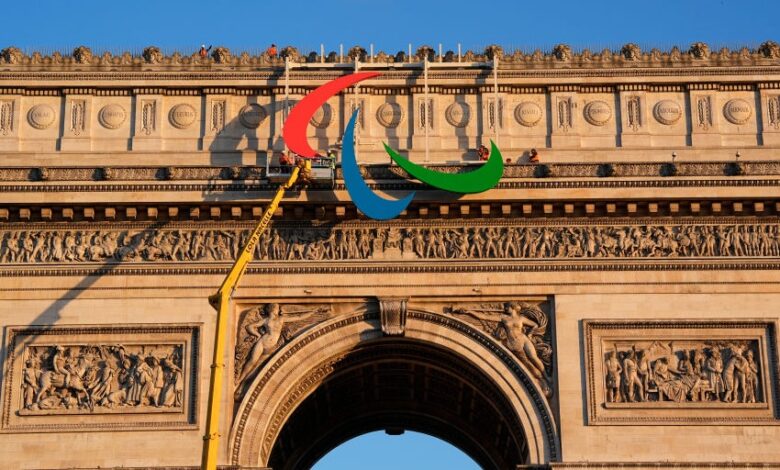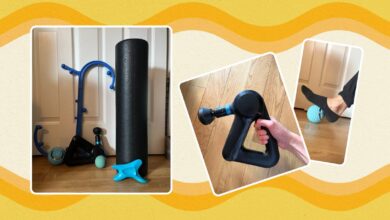Yes, We Have to Wait 2 Whole Weeks for the Paralympics to Start—Here’s Why

I don’t know about you, but watching the 2024 Olympics closing ceremony felt like waking up from a two-week-long trance during which I became a boxing buff, canoeing connoisseur, and Ilona Maher superfan. I laughed, I cried, and then cried some more as I watched so many dreams come true for tons of tremendous athletes. Luckily, we get to experience 12 more days of these special moments when the 4,400 Paralympic athletes take the stage—but that’s not happening for another couple of weeks. Why? It turns out there are several reasons for the delay between the Olympic and Paralympic games, despite the fact that they happen in exactly the same place.
Historically, the two-week gap ensured that workers had time to make the Village and competition spaces more accessible for the thousands of athletes (and their assistance dogs!), who all have varying disabilities, Craig Spence, chief brand and communications officer of the International Paralympic Committee, tells SELF. But thanks to progress in disability awareness and inclusion, everything is “created with accessibility in mind for both the Olympic and Paralympic Games, so all the ramps and tactile flooring are there from the start.” In fact, nothing needs to be added or changed to make the space more inclusive.
However, a lot of the competition venues do need to be reconfigured for Paralympic-specific sports, Spence says. For example, some goalball games—a sport for visually impaired players that involves throwing a ball with bells into a cage—will be held in the same place where some of the Olympic handball courts were, which are about double the size. Similarly, volleyball courts are larger than those for sitting volleyball, which is nearly the same game but played with a lower net while seated on the floor. (Although this year, these sports are held in different areas, so it’s a non-issue.)
Plus the area that held the Olympic skateboard, breaking, and 3×3 basketball events has to be completely dismantled, removed, and rebuilt to host the Paralympic opening ceremony on August 28, Spence says. And the famous Olympic Rings have to be removed from all of the competition venues and replaced with the Paralympic Agitos, which means “I move” in Latin and is made up of three waves.
Xinhua News Agency/Getty Images
The Paralympians and Olympians stay in the same dorms, which are wheelchair-accessible for the most part, Becca Murray, a three-time Paralympic basketball player, tells SELF. But “sometimes the rooms are a little snug, so we have to move things around to make it more convenient for us,” she says. The Village’s massive dining hall with 3,200 seats also has helpful features like digital food menus that offer audio description. That said, it can still be challenging to navigate for athletes with a visual disability, although there’s help from sighted guides if people need it. “It can take months to learn a place like that, so I’m proud of myself if by day five I can find my way there,” Matt Simpson, a two-time Paralympic goalball athlete, tells SELF. Otherwise, the US Olympic and Paralympic Committee does a good job of providing other accommodations when possible, Simpson adds, like offering tactile maps of the Village in athletes’ welcome bags. “Little things like that just make a huge difference.”
Of course, there’s another big reason for the delay: It takes time to get 10,500 Olympians out of the Village and then clean everything up for the next round of athletes. “They do not all leave right after the Closing Ceremony, as airports simply do not have the capacity to fly everyone out on the same day,” Spence says. “There are then a few days of deep-cleaning before the Paralympians arrive.”
And let’s not forget that everyone involved in organizing the Games deserves some rest too. “Delivering a major sport event like the Olympic and Paralympic Games is exhausting. To do both back-to-back, for the Organizing Committee, media, broadcasters, and volunteers would be so difficult to do,” Spence says. “Everyone needs a breather to recharge their batteries, including TV viewers who probably would struggle with five weeks of wall-to-wall sporting action.”
Although I can, with absolutely no doubt, bask in wall-to-wall sporting action for five weeks straight, all of the above makes sense, and I appreciate having some time to learn about the 22 para-sports and all the athletes I plan to follow when the Paralympics get going!
SELF is your one-click source for all things Summer Olympics. Read our latest coverage of the Paris Games here.
Related:
- The Best Thing About the Olympic Village Is the Free Preventive Health Care
- 16 Inspiring, Oh-My-God-Did-That-Just-Happen Moments From the Paris Games
- Paris Held a ‘Marathon for All’ for Amateur Runners That Followed the Iconic Official Race Route
Get more of SELF’s great sports coverage delivered right to your inbox—for free.



